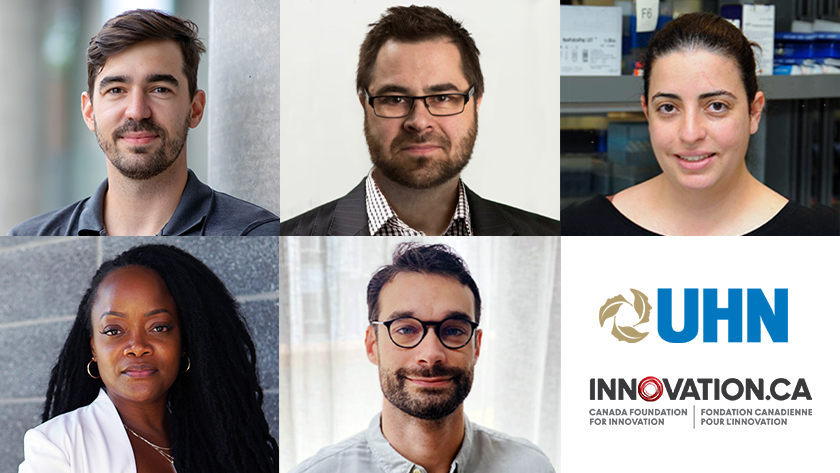
Five research teams at UHN have collectively received more than $1.4 million in funding from the Canada Foundation for Innovation’s John R. Evans Leaders Fund (JELF) for research infrastructure:
Drs. Federico Gaiti,Sushant Kumar and Gregory Schwartz (Princess Margaret Cancer Centre) will lead projects interrogating how cancer cells behave at the single-cell level, such as investigating the role of genomic variations in cancer and integrating multi-omic data to understand how cell networks communicate in cancer. The team will use the infrastructure—which includes general laboratory and computing equipment—to perform genomics experiments and carry out advanced machine learning and computational analyses.
Drs. Luka Milosevic, Suneil Kalia and Taufik Valiante (Krembil Research Institute) will examine how a therapy called deep brain stimulation can reduce the symptoms of Parkinson disease. The infrastructure purchased with this funding—two neural signal processor systems and computing equipment and software—will enable the investigators to identify the changes in brain activity that are associated with Parkinson disease and determine how deep brain stimulation normalizes this activity.
Drs. Clinton Robbins, Myron Cybulsky and Jason Fish (Toronto General Hospital Research Institute [TGHRI]) will investigate how cells in the walls of blood vessels interact with each other and with cells of the immune system to influence the progression of cardiovascular disease. The funding will be used to acquire a new microscope for the Advanced Optical Microscopy Facility (AOMF) that will be accessible to researchers from across UHN.
Dr. Lena Serghides (TGHRI) will explore how treatment with HIV antiretroviral drugs during pregnancy affects maternal–child health. She will use the funding to purchase critical equipment that will enable her team to determine how HIV and antiretrovirals affect maternal hormones, the placenta, fetal development and the child's neurodevelopment, with the aim of improving HIV treatment guidelines and quality of life for families affected by HIV.
Drs. Nikki Woods, Kulamakan Kulasegaram and Maria Mylopoulos (TIER) will identify effective instructional methods to improve education in the health professions through evidence-based practices. The researchers will use the funding to establish an education research laboratory and develop strategies to help health professionals achieve core clinical competencies and unique skill sets that will facilitate adaptation and innovation.
These projects are part of the $64 million that the Canada Foundation for Innovation has invested across 251 projects at 40 universities and research hospitals.
Congratulations to the UHN research teams that will participate in these exciting projects!




